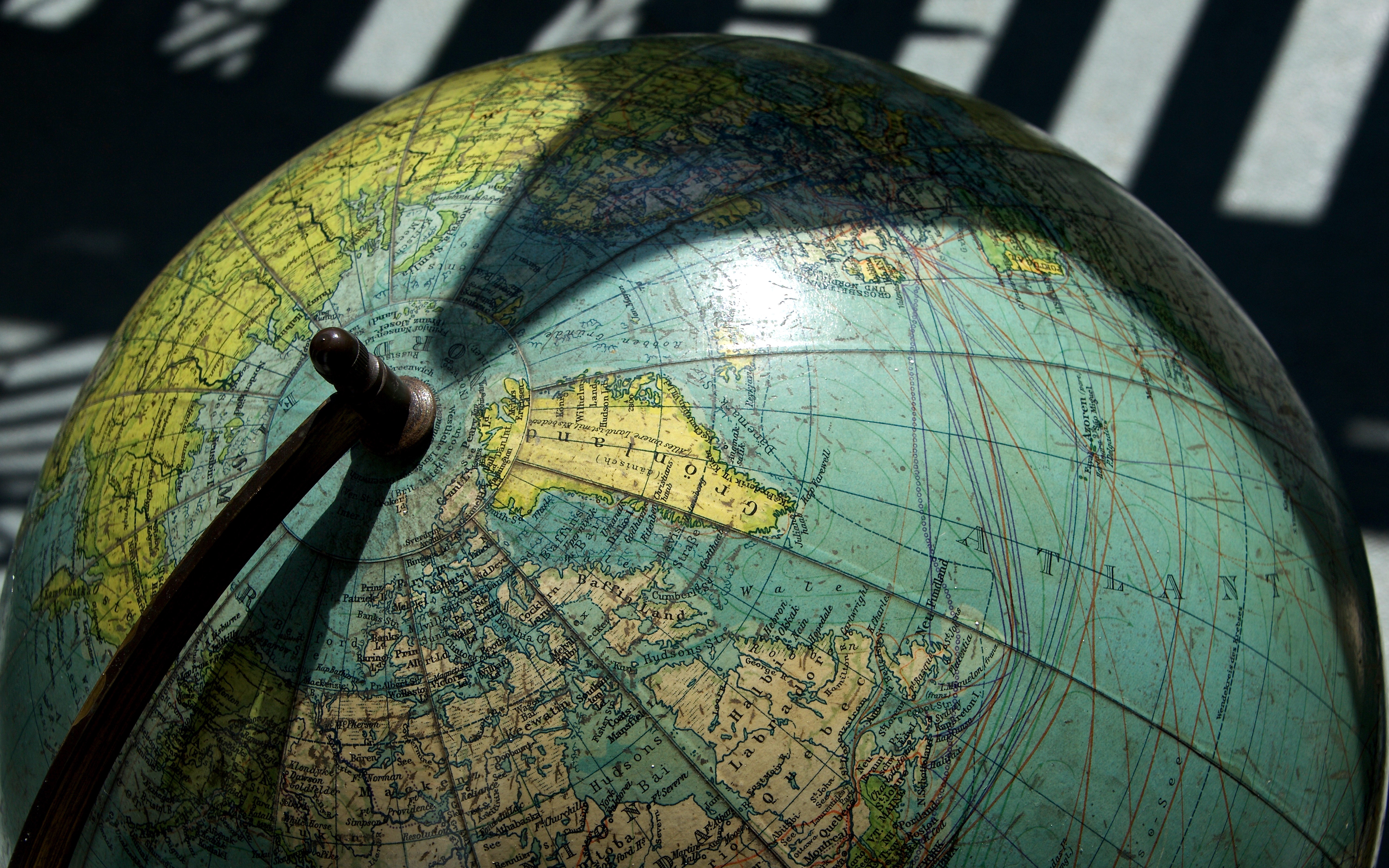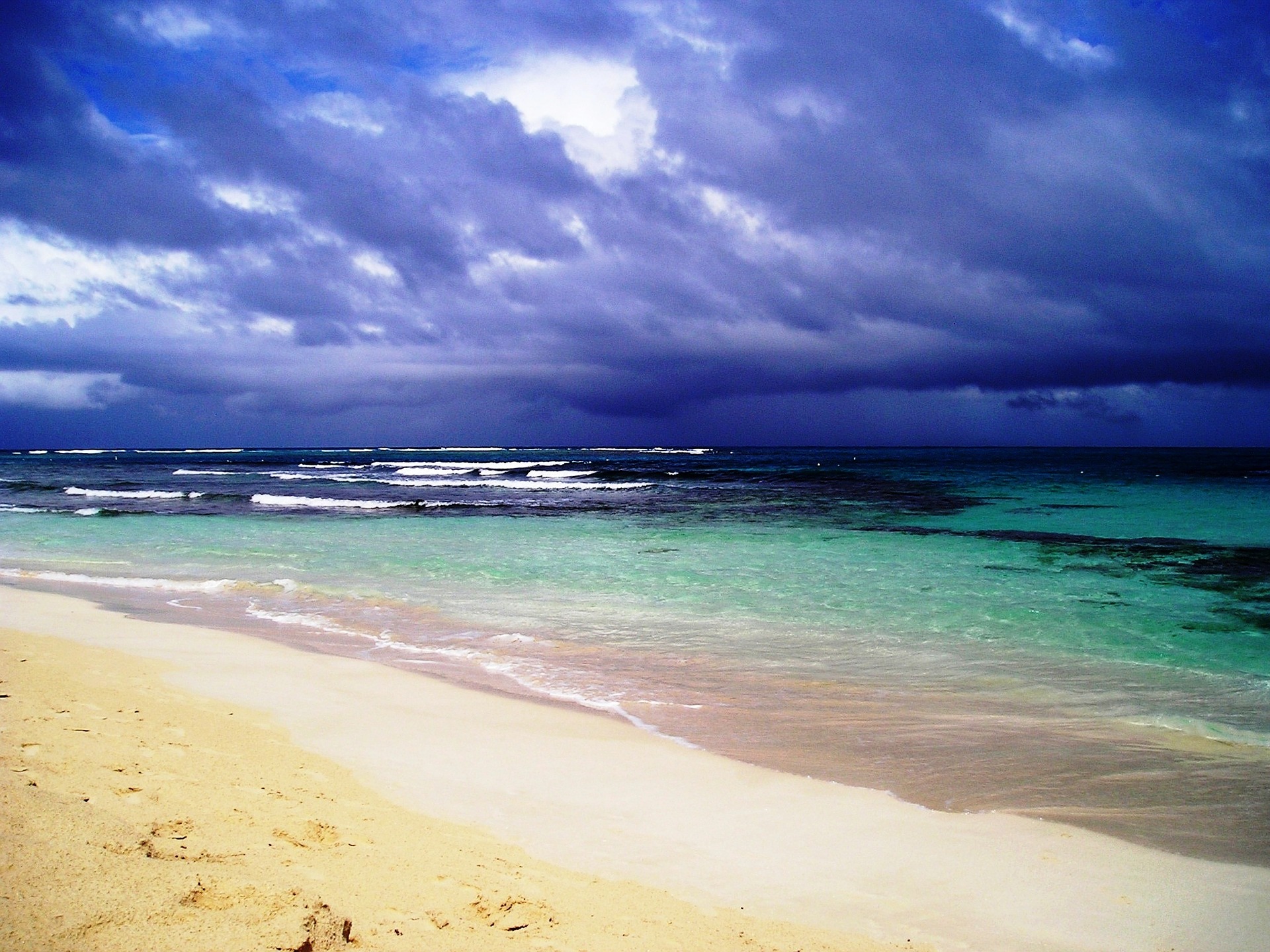Comment on Blocher & Gulati’s “Puerto Rico and the Right of Accession”
Written by Gustavo A. Gelpí*
Is the U.S. Congress under a constitutional obligation to admit Puerto Rico as the fifty-first state of the Union if this is the ample preference of U.S. citizen voters therein? Or if these voters favor another form of permanent union with the United States, is Congress required to allow for such arrangement?[1] Finally, can Congress override the overwhelming rejection of independence by the U.S. citizens in Puerto Rico[2] and instead expel the territory and grant its independence? Professors Blocher and Gulati eloquently discuss these enigmas from domestic and international law perspectives and conclude that, as to domestic law, “the answers are not obvious” and pose a “difficult question.” In contrast, they explain, international law indeed suggests a legal right to self-determination. This comment builds upon examples included in Blocher and Gulati’s Article using judicial, congressional, and historical precedents, highlighting that any decision about Puerto Rico’s future must consider its impact on U.S. citizens residing in the Commonwealth.
Before proceeding, I feel compelled to address one particularly important matter: Puerto Ricans are natural-born U.S. citizens. This status as U.S. citizens is the backdrop to answering the questions posed by Blocher and Gulati. Persons born in Puerto Rico have been U.S. citizens since 1917 by virtue of the Jones Act.[3] Congress, however, replaced this statutory citizenship with natural-born citizenship, effective for all persons born in Puerto Rico, after January 13, 1941.[4] Accordingly, persons born in the U.S. territory have enjoyed the same birthright citizenship as their stateside-born brethren for seventy-seven years. Congress, in the exercise of its power over the territory it has now held for 120 years, must be cognizant of the portentous nature of such citizenship.[5] This simply is not an instance of the United States possessing and/or controlling territory not populated nor governed by its own citizens.
Judicial Precedent
Professors Blocher and Gulati highlight the nefarious Insular Cases and the century-plus distinction between incorporated and unincorporated territories as proof that Congress can unilaterally decide Puerto Rico’s future. These cases are still the law of the land despite their imperialistic and racial underpinnings.[6] If Puerto Rico remains unincorporated, Congress, as a matter of constitutional law, retains the seemingly limitless power to determine whether to maintain the territory’s status quo, admit it to the Union, call for some other political arrangement, or simply expel it. Recent Supreme Court jurisprudence appears to reaffirm this power. In 2016, in Puerto Rico v. Sanchez Valle, the Supreme Court held that, for purposes of the Double Jeopardy Clause, the territory’s sovereignty emanates from Congress.[7] Despite not mentioning the Insular Cases, the majority opinion in Sanchez Valle quite arguably reaffirms Congress’ power to reshape Puerto Rico’s political destiny, stating that “Congress has broad latitude to develop innovative approaches to territorial governance . . . .”[8]
The authors highlight that there may be some constitutional limit to Congress’ territorial power over Puerto Rico. In Boumediene v. Bush the Supreme Court, citing earlier precedent, recognized that the Insular Cases involved territories “with wholly dissimilar traditions and institutions” that Congress intended to govern “temporarily.”[9] The Court further held that “it may well be that over time the ties between the United States and any of its unincorporated territories strengthen in ways that are of constitutional significance.”[10] Certainly the Puerto Rico of 2018 is not a territory of dissimilar traditions; after 120 years of U.S. dominion, Congress has chiseled it into a de facto state.[11] For example, Puerto Rico has an Article III federal court identical in jurisdiction, powers, and responsibilities to those in the States.[12] No other non-state U.S. jurisdiction, except the District of Columbia, ever enjoyed an Article III court until admitted to the Union.[13]
The authors also sustain that Boumediene may support the proposition that the U.S. citizens of Puerto Rico have a constitutional right to control their political destiny in some way, thus limiting Congress’ power. Boumediene, which was not cited in Sanchez Valle, states that “[a]bstaining from questions involving forward sovereignty and territorial governance is one thing. To hold that the political branches have the power to switch the Constitution on and off at will is quite another.”[14] On the one hand, Boumediene probably does not limit Congress’ territorial power to define a territory’s status, because the Court abstained from questions of sovereignty. On the other hand, Boumediene also implies that the power is limited by checks and balances, which allow the courts to ensure that Congress does not violate citizens’ constitutional rights. The result is that, absent further pronouncements by the Court, Congress’ power to define a territory’s status is not limited. Only its power over citizens inhabiting a territory is.
Congressional Precedent
The authors allude to Congress’ enactment of PROMESA shortly after the Supreme Court decided Sanchez Valle as proof that Congress can act unilaterally. They further state that opening the door to Chapter 9 of the Bankruptcy Code came at a “steep price” for Puerto Rico.[15] From a strictly democratic perspective such is the reality. By establishing an unelected Financial Oversight Board capable of overriding the elected Governor and Legislature,[16] PROMESA signals the very end of the republican form of government established when Congress approved Puerto Rico’s Constitution in 1952.[17]
PROMESA provides for a fiscal board that controls the territory’s finances.[18] Intended as a blessing to save Puerto Rico from economic collapse, it indeed comes with a curse. The federal statute de facto amends Puerto Rico’s Constitution. It makes the board an entity of the territorial government, rather than of the federal government,[19] and places the same above the two elected branches of local government, even sub silentio above the Puerto Rico Supreme Court, for purposes of fiscal actions.[20] The members of the board are also appointed by the President without Senate confirmation and therefore not commissioned via a local appointment process.[21] In practical terms, the laws and actions of Puerto Rico’s elected officials are subservient to the board. While U.S. states could argue that this is an egregious violation of state sovereignty, for Puerto Rico it becomes a simple exercise of unfettered territorial power.[22]
Assuming that PROMESA withstands any constitutional challenge before the Supreme Court, it provides congressional precedent to further shape, in any way and form, the political destiny of Puerto Rico. Lacking its once-certain political autonomy as a state-like entity, the territory remains at Congress’ whim. While statehood or independence—or even a modification of the status quo within the territorial framework—are possible future paths with clear consequences, [23] Congress could instead continue to hold the island in perennial limbo as it has done for 120 years. For example, Congress could incorporate Puerto Rico and not make it a state indefinitely—indeed, it took ninety-two years for the incorporated territory of Alaska to become a state. Likewise, Congress could maintain the current commonwealth status without modifying it, or it could further strip the territory’s faculties, thus dialing back even more the powers it gave to the territory over the last century.
Historical Precedent
The authors point to the Philippines as historical precedent of unilaterally disposing of a territory via independence. The once-U.S. territory was acquired from Spain along with Puerto Rico and Guam in 1898. In 1916 Congress granted the Philippines autonomy.[24] In 1935 it established the Commonwealth of the Philippines as a transition to independence.[25] Finally, in 1946 the Philippines became an independent sovereign. At no point did the people of the Philippines vote for independence.[26]
Such precedent does not stand alone, and there is a more recent example. In 1904 the United States acquired from Panama, via treaty, what would be known as the Canal Zone.[27] This U.S. territory reverted to Panama after the two nations ratified another treaty in 1978.[28] Both the Philippines and Canal Zone evidence that Congress historically has not been shy about entirely abdicating its territorial as well citizenship and nationality powers over a territory when circumstances so warrant. For example, once the Philippines became a sovereign nation, its citizens born therein no longer held U.S. national status. Similarly, in the Canal Zone, upon returning the same to Panama, individuals subsequently born there would no longer be U.S. citizens. Absent statehood or a specific pronouncement by the Supreme Court, if Congress maintains or modifies the current commonwealth scheme, or opts for territorial secession, there is no guarantee that persons born in Puerto Rico after a specific date provided by statute will receive natural-born citizenship, statutory citizenship, or even U.S. national status.
Conclusion
I commend and applaud Professors Blocher and Gulati for preparing such an excellent and persuasive Article. The piece demonstrates that there is likely no legal domestic impairment to the exercise of Congress’ territorial power to unilaterally determine Puerto Rico’s future political status or the citizenship rights of future generations unless the Supreme Court were to limit the power’s extent. At the same time, the Article also accurately depicts the United States’ lack of adherence to the democratic principle of consent of the governed in its own territorial possessions.[30] Again, such a scenario is even more appalling given the fact that an overwhelming majority of the inhabitants of Puerto Rico are natural-born United States citizens.[31]
* United States District Judge (2006-present) and author of The Constitutional Evolution of Puerto Rico and Other U.S. Territories 1898-Present (2017).
[1] See, e.g., Compact of Permanent Union between Puerto Rico and the United States: Report of the Ad Hoc Advisory Group on Puerto Rico (1975) (report and proposal by joint group appointed by the U.S. President and the Governor of Puerto Rico to study possible enhancements to Puerto Rico’s Commonwealth status); H.R. 11200 & 11201, 94th Cong. (1975) (proposing the Compact of Permanent Union between Puerto Rico and the United States, which ultimately failed in Congress).
[2] See Alexia Fernández Campbell, Puerto Rico’s Most Ambitious Push yet for Statehood, Explained, Vox (Jan. 11, 2018), https://www.vox.com/policy-and-politics/2018/1/11/15782544/puerto-rico-pushes-for-statehood-explained (“Puerto Rico’s two main political parties represent those who are in favor of statehood and those who want to remain a commonwealth. A smaller number of Puerto Ricans want full independence.”).
[3] Jones Act (Puerto Rico), ch. 145, 39 Stat. 951 (1917) (codified at 8 U.S.C. § 1402 (1952)).
[4] 8 U.S.C. § 1402 (1952).
[5] Persons born in Puerto Rico are not the only natural-born U.S. citizens residing therein. A significant number of natural-born U.S. citizens born in the States have also made the U.S. territory their home, as have many naturalized U.S. citizens. See Arnold H. Leibowitz, Defining Status 161-62 (1989).
[6] Boumediene v. Bush, 553 U.S. 723, 759 (2008) (“This century-old doctrine informs our analysis in the present matter.”).
[7] 136 S. Ct. 1863, 1876-77 (2016).
[8] Id. at 1876.
[9] 553 U.S. at 759 (citing Reid v. Covert, 354 U.S. 1, 14 (1957).
[10] Id. at 758.
[11] See Examining Bd. of Eng’rs v. Flores de Otero, 426 U.S. 572, 594 (1976) (“[T]he purpose of Congress in the 1950 and 1952 legislation was to accord to Puerto Rico the degree of autonomy and independence normally associated with States of the Union . . . .”).
[12] Id. at 595 n.26; see also Gustavo A. Gelpí, The 50th Anniversary of the District of Puerto Rico Article III Court, Fed. Law., July 2016, at 18, 33 (2016).
[13] Gelpí, supra note 12.
[14] 553 U.S. at 765.
[15] Joseph Blocher & Mitu Gulati, Puerto Rico and the Right of Accession, 43 Yale J. Int’l L. 201, 219 (2018).
[16] See 48 U.S.C.A. § 2141 (West 2016); Juan R. Torruella, Why Puerto Rico Does Not Need Further Experimentation with Its Future: A Reply to the Notion of “Territorial Federalism”, 131 Harv. L. Rev. F. 65, 94 (2018) (“The Board directs and sets schedules, by which the Governor prepares and submits fiscal plans required by the Act, and by which the Board approves, disapproves, or certifies such plans; but in the absence or default of such plans, the Board ‘in its sole discretion’ may develop said plans and submit them to the Governor and Legislature, whereupon they shall be ‘deemed approved by the Governor.’”).
[17] See Examining Bd. of Eng’rs, 426 U.S. at 594.
[18] Pub. L. No. 114-187, 130 Stat. 549 (2016) (codified at 48 U.S.C.A. §§ 2101–2241 (West 2017)).
[19] 48 U.S.C.A. § 2121(c)(1) (West 2017).
[20] See id. §2141.
[21] Id. § 2121(e).
[22] Id. § 2121(b)(2) (“Congress enacts this Act pursuant to article IV, section 3 of the Constitution . . . which provides Congress the power to dispose of and make all needful rules and regulations for territories.”).
[23] As to the possibility of statehood, ninety-seven percent of those voting in the most recent plebiscite favored statehood. Frances Robles, Despite Vote in Favor, Puerto Rico Faces a Daunting Road Toward Statehood, N.Y. Times (June 12, 2017), https://nyti.ms/2tf9o5X. As for modifying the status quo, see Rafael Hernández-Colón, The Evolution of Democratic Governance Under the Territorial
Clause of the U.S. Constitution, 50 Suffolk U. L. Rev. 587, 617 (2017) (“These changes must prevent the denial of self-government embodied by PROMESA from happening again.”). Independence is possible but has historically lacked political support. See Fernández Campbell, supra note 2.
[24] Philippine Autonomy Act, ch. 416, 39 Stat. 545 (1916).
[25] Philippine Independence Act, ch. 86, 48 Stat. 456 (1934).
[26] Leibowitz, supra note 5, at 54 (“The 1934 act, in addition to the promise of independence, gave the Philippines the right to draft their own constitution. The constitution was to be voted upon but the question of independence itself, at the request of the Philippine authorities, was not submitted to a plebiscite.”).
[27] Convention Between the United States and the Republic of Panama for the Construction of a Ship Canal to Connect the Waters of the Atlantic and Pacific Oceans, Pan.-U.S., Nov. 18, 1903, 33 Stat. 2234.
[28] Panama Canal Treaty, Pan.-U.S., Sept. 7, 1977, T.I.A.S. No. 10,030 (entered into force Oct. 1, 1979).
[29] See Gonzales v. Williams, 192 U.S. 1, 12-13 (1904).
[30] See Hernández-Colón, supra note 23, at 616 (“After the significant harm Puerto Rico’s government will endure as a result of PROMESA, Puerto Rico’s relationship with the United States—based on the principle of consent of the governed—will have been jeopardized.”).
[31] See Torruella, supra note 16, at 97 (“Puerto Rico is populated by U.S. citizens, a not-inconsiderable fact to be kept in mind by those looking to further experiment with their destiny. . . . Why geographic location should make any difference or have any relevance to a determination of such a fundamental question as the rights to which a citizen is entitled defies any logic or valid legal principle . . . .”) (emphasis in original).




Judge Gelpi, along with Blocher & Gulati, focus on Congress’s role in deciding Puerto Rico’s constitutional status. While this emphasis is understandable, given Congress’s plenary powers under the territory clause of the Constitution, I would emphasize the strategic nature of this fascinating constitutional debate.
Indeed, I have published several papers exploring the strategic nature of the Puerto Rico status debate:
1. “Condorcet’s Paradox in Puerto Rico,” where I model the stalemate over P.R.’s constitutional status as a Condorcet cycle. (This paper isavailable here: https://papers.ssrn.com/sol3/papers.cfm?abstract_id=2817959.)
2. “A Game-Theoretic Analysis of the Puerto Rican Status Debate,” where I model the deadlock over P.R.’s constitutional status as a war of attrition. (This paper is available here: https://papers.ssrn.com/sol3/papers.cfm?abstract_id=1516489.)
3. “Is a Post-Colonial Puerto Rico Possible? A Game-Theoretic Analysis of the Impasse over Puerto Rico’s Status,” where I model the impasse over P.R.’s constitutional status as a truel. (This paper is available here: https://papers.ssrn.com/sol3/papers.cfm?abstract_id=1134053.)
In short, the P.R. status debate has been deadlocked for decades. The existing literature, however, has neglected the strategic source of this impasse.
F. E. Guerra-Pujol
University of Central Florida